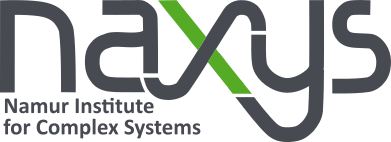PHOENIX : postdoc position (AI expert) – January 2026

The University of Namur opens a 12-months renewable postdoctoral researcher position for an expert in ML/AI techniques interested by applications in Cultural Heritage Science (analysis of spectroscopic data measured on antique coins and medieval manuscripts for classification and datation). Hiring is scheduled for January 2026.
Research project
The project (entitled PHOENIX) that the postdoctoral researcher will join is funded by the Concerted Research Action program of the University of Namur. PHOENIX is a highly collaborative and interdisciplinary project in the field of Cultural Heritage Sciences, which brings together PIs of the Namur Institute of Structured Matter (NISM), the Namur Institute for Complex Systems (naXys) and the Institute Heritages, transmissions & inheritances institute (PaTHs). The project focuses on two types of cultural heritage objects: medieval parchments and antique coins. PHOENIX aims to develop a methodology based on physicochemical characterizations capable of addressing common objectives for these radically different artefacts. Three objectives will be the determination of date, provenance, and production chain of both artefacts by experimental techniques combined with automated machine learning procedures. In a next step of the project, historians will examine to which extent the results obtained by AI challenges existing methods used in historical sciences. Five complementary techniques (µ-Raman, UV/Vis/NIR, ATR-FTIR, IBA, ToF-SIMS) will be used to characterize the artefacts. The measurements from each technique will first be analyzed to obtain a physicochemical interpretation of the raw data (ongoing PhD project). These pre-screened datasets will then be analyzed by various machine learning techniques (dimensionality reduction, unsupervised clustering, artificial neural networks, auto-encoders, adversarial networks, SHAP values analysis, etc.) to reach the objectives of the project. The team consists of Nicolas Gros (PhD candidate), Francesca Cecchet, Julien Collaux, Laurent Houssiau, Alexandre Mayer, Olivier Deparis (PIs, physicists), Nicolas Ruffini-Ronzani and Christophe Flament (PIs, historians).
Profile
We are looking for a highly motivated and skilled candidate, who has a PhD thesis in computer science, mathematics, computational physics/chemistry or equivalent.
The candidate:
- must demonstrate expertise in algorithmics/machine learning/artificial intelligence
- must show motivation in the interdisciplinary aspects of Cultural Heritage Science and the challenges inherent to this field (experimental noise, few-data regime)
- will have to deploy deep learning algorithms using Python/Keras/Pytorch or equivalent to classify and extract information from experimental datasets
- has good communication skills in English (reading, writing and speaking)
- will adapt to French-speaking environments, when needed
Candidates must send their application by email to alexandre.mayer@unamur.be (copy to olivier.deparis@unamur.be) with a motivation letter, a CV that includes academic/scientific achievements, coding skills, ML/AI certifications, a list of publications, and two recommendation letters. Submission deadline is 30 November 2025 (hiring scheduled in January 2026). The selection procedure will be based on the analysis of applications, along with the audition of preselected candidates.
Conditions of eligibility
Starting date: 15 January 2026
Contract: 1-year fixed term contract (renewable for 6 months)
Category: Postdoc
Net salary per month: approx 3300 € (Postdoc grant)
Hiring conditions: International mobility
Scientific Environnement
The NISM Institute (https://nism.unamur.be)
NISM teams work on various research topics in organic chemistry, physical chemistry, chemistry of materials, surface science, solid state chemistry and physics from theoretical and experimental points of view. It aims at exchanging and sharing skills and ideas in the field of synthesis and functionalization of molecular systems and innovative materials, of 0 to 3 dimensions. It also aims at facilitating the rational design of solids with specific architectures and surface properties, while developing advanced techniques for the study of their physicochemical properties.
The naXys Institute (https://www.naxys.be)
The main objective of naXys is the study of complex systems, by means of the analysis of real-world data, their modelling through mathematics and numerical simulations, and their control and optimization. The different poles of the institute reflect its interdisciplinary nature. Research topics and expertise include pure or applied mathematics, theoretical biology, economics, astronomy, quantum physics, artificial intelligence and robotics. The institute organizes skill development sessions and regular seminars to promote interactions between its members.
The PaTHs Institute (https://paths.unamur.be)
The Heritages, Transmissions & Inheritances (PaTHs) Institute is a federation of research centres and groups that have emerged in and around the Arts Faculty of UNamur in recent years. Bringing together the researchers of those entities, it aims to encourage a diachronic approach to social and cultural phenomena in the broadest sense. It also aims to strengthen collaboration between several “human sciences” that are usually perceived as complementary, but whose subjects and research methods are in fact very heterogeneous.
The postdoctoral researcher will have access to the high-performance computing facilities of the University of Namur (https://platforms.unamur.be/ptci).

